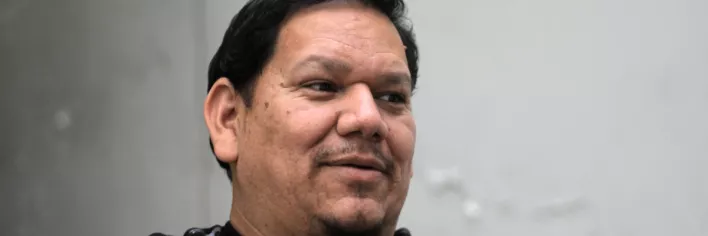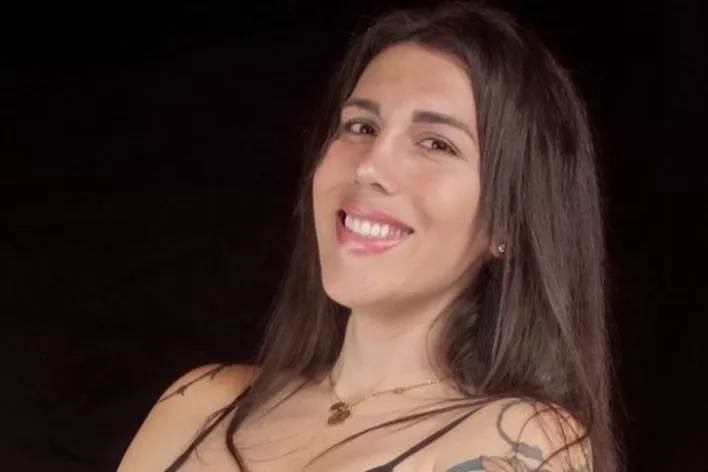On the May 17, 1990, homosexuality was declassified as a mental disorder by the World Health Organization, a day which has been established since 2004 as the International Day Against Homophobia, Transphobia and Biphobia. 33 years later and the risks of identifying as a lesbian, gay, bisexual, lesbian, trans, intersex or queer person remain unaltered in many countries. Over 60 UN member states still have legislation criminalizing persons of diverse sexual orientation and gender identity. Even countries with no legal obstacles to guarantee full rights for LGBT peoples, such as the US, record shocking levels of hate crimes.
LGBT rights defenders across the world face heightened threats for their work calling out discrimination against LGBT people and demanding their governments adopt protective laws securing LGBT rights, as well as promoting acceptance of diverse sexual and gender identities. Numerous human rights organizations denounce consistent violations against LGBT defenders worldwide, including physical attacks, arbitrary arrests, home and office raids, intense smear campaigns and violent killings. The UN Special Rapporteur on the situation of human rights defenders has confirmed that such hostility and adversity are generated by both State and non-State actors, making LGBT rights activists among the most targeted defenders in the world.
LGBT rights violations in Honduras
Article 60 of the Honduran Constitution states that discrimination on the grounds of sex, race, class or any discrimination that is detrimental to human dignity is punishable by law. In reality, Honduras continues to be a perilous country for LGBT people due to the severe stigma around sexual orientation and gender identity. The OHCHR has attributed the intensified vulnerability of LGBT people in Honduras to intolerant religious trends that impose morals based on heteronormativity and binary identity. Trans women in Honduras face particularly heightened risks, having one of the highest rates of transfemicide in the world relative to its population.
Local LGBT rights groups have denounced the imposition of a conservative crusade which targets LGBT people and publicly condemns so-called “gender ideology”. During the electoral campaign of 2021 the then-president labeled LGBT defenders as “enemies of independence”. Asociación Arcoíris is an LGBT rights organization provided with protective accompaniment by PBI since 2015 due to the threats their leaders and members have faced. They have reported an increase in public acts of homo-, trans- and bi-phobia since the military coup of 2009:

“The setbacks we have seen in human rights over the past 12 years have been terrible. Violence has been normalized, discrimination has been normaliszd, all kinds of actions that harm others have been normalized. So, we have to break them down in order to rebuild.”
- Donny Reyes, Asociación Arcoiris,
Overall, 442 violent deaths were recorded between 2009 and 2022, according to data from local human rights organization the Cattrachas Lesbian Network. The situation is particularly disturbing for trans women who have a life expectancy of less than 35 years. In January 2022 PBI provided protective accompaniment to the MUÑECAS de Arcoiris Trans collective at the funeral of trans woman Thalía Rodriguez, shot to death in the first days of the new year, constituting the first violent LGBT death of 2022. Due to societal marginalization, exclusion and abuse, many trans women leave Honduras together in caravans, forced to flee their homes with the hope of one day living free from fear.
Disappointment with the response of the new Government
The victory of Xiomara Castro of the left-wing Libre party in the 2021 elections ended the eight-year term of ex-President Juan Orlando Hernández, currently facing drug trafficking charges in the United States. Castro made history as the first woman president of Honduras. Her Pro-Women, Pro-LGBTI campaign aimed to counter hate speech and promised laws to protect LGBT people. Yet the following year was an especially distressing year for the LGBT community. An investigation by the NGO Unidad de Vigilancia KAI registered 42 violent deaths of LGBT people in 2022, including six trans women and seven LGBT rights defenders. According to the civil society organization CONADEH, the impunity rate for all homicides committed against LGBT people since 2009 remains at over 90%. Moreover, in over half of the incidents reported to PBI by members of the LGBT community, State actors - particularly the National Police, Preventative Police, and the Army - are described as aggressors.
On April 28, 2023, the Inter-American Commission presented its preliminary observations following an on-site visit to Honduras that month. In the report the Commission observes the absence of adequate State provisions for acts of discrimination committed by non-State actors, noting complaints of being denied or dismissed from employment due to gender identity or sexual orientation, acts of harassment and aggression by State officials and a lack of emergency shelters for people who suffer violent threats. LGBT human rights defenders have also denounced being refused access to and use of public spaces to carry out their activism.
Defenders at the NGO SOMOS CDC have denounced the government’s lack of action in advancing rights for the LGBT population, despite the Libre party reiterating its commitment to addressing LGBT violence when they came into power:

“We have seen that there is really no interest on the part of the State to have an approach towards us because they have not taken concrete actions. Regarding the recognition of gender equality for trans people through the Gender Identity Law and a meaningful reform of the National Registry of Persons Law, the time to carry out such actions has passed. We basically continue in the same way we were with the previous government… We continue with the issue of interference by religious fundamentalist groups, the actions of pro-life groups against issues of comprehensive sexual education, the issue of equal marriage… The same LGBT people continue to be excluded from spaces where LGBT people are discussed, such as with monitoring of the sentence in the emblematic case of Vicky Hernandez´s murder. We really regret that there are no advances on LGBT human rights issues, and we continue in the same stagnation.”
- Grecia O’Hara, SOMOS CDC.
PBI Honduras has expressed concern over pending State action with regard to compliance of a number of measures dictated by the Inter-American Court in 2021, which declared the State of Honduras responsible for the transfemicide of Vicky Hernández, human rights defender assassinated June 28, 2009, during the military coup. While on May 9 2022, the government recognized its responsibility for her murder and issued a public apology, there are few signs of progress being made in other actions demanded by the Court. These include implementing a system for collecting data on violence against the LGBT community, creating a documentary on the experiences of trans women in Honduras, providing an educational scholarship for trans women, as well as a permanent training plan on LGBT rights for State security agents.
PBI’s work supporting threatened LGBT activists
PBI Honduras stands in solidarity with the LGBT collective in Honduras and continues to provide protective accompaniment two organizations based in Tegucigalpa and dedicated to securing LGBT rights. Association Arcoiris and Somos CDC aim to empower the LGBT community in Honduras by advancing legal cases related to human rights violations, organizing events and training sessions, coordinating regional campaigns, and carrying out advocacy to promote equality laws.
PBI is extremely concerned at the security situation facing the LGBT collective in Honduras, and disappointed at the pace of action by government to meet their commitments. We stand in solidarity with LGBT rights organizations and will continue to support LGBT activists in their struggle for acceptance, equality and justice.
Watch this video to learn more about the struggle for the Honduran LGBT community.
